Conclusions Webinar 5: „Climate Neutrality Awareness, the Key to Society Involvement in a Sustainable Future“
On 20 February 2024, the Romanian Network of Energy Cities / OER organised a webinar focused on efficient communication to involve the local communities in the common effort for climate action. More than 50 participants were present and engaged in the topic of this event, a part of the Ready4NetZero project.
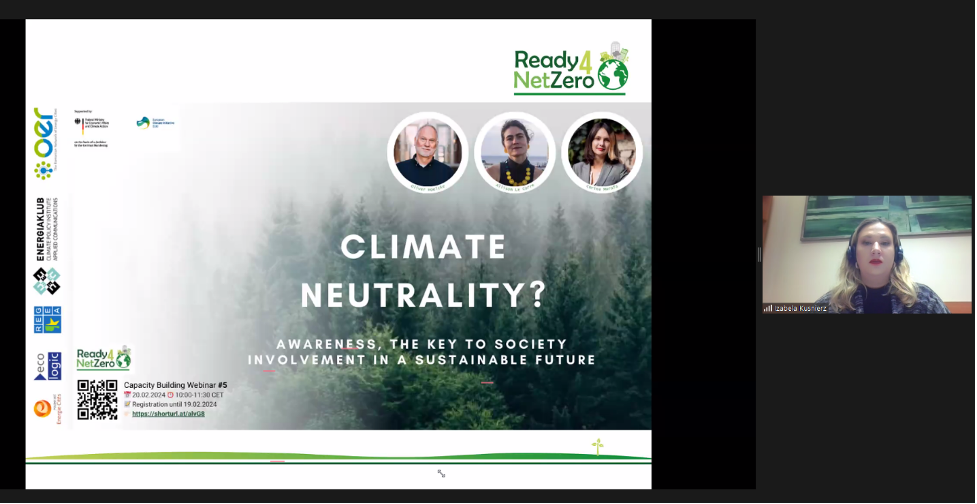
Izabela Kuśnierz, from PNEC – Association of Municipalities Polish Network „Energie Cités“, the coordinator of the project, welcomed the participants to the 5th webinar of the project, which delved deeper into the concept of Climate Neutrality. The main objectives of the project were mentioned, including the capacity-building webinars, workshops, study visits, the communication campaign and also the guidance document that will be published in the spring.
The webinar, moderated by Mariana Țînțărean together with Alina Alexa, invited three very relevant speakers, who explore how local authorities and citizens can work together to achieve Climate Neutrality, discussing the available instruments for implementing Climate Neutrality initiatives making them accessible and achievable for everyone.
The first speaker of the event was Oliver Hölcke, Advisor for Communications at the European Climate Initiative (EUKI). Oliver is a trained journalist and before joining the EUKI communications team, he worked at various radio stations in Germany, he was also responsible for public relations at the International Climate Initiative (IKI) of the Federal Environment Ministry and he worked for corporate communications at GIZ.
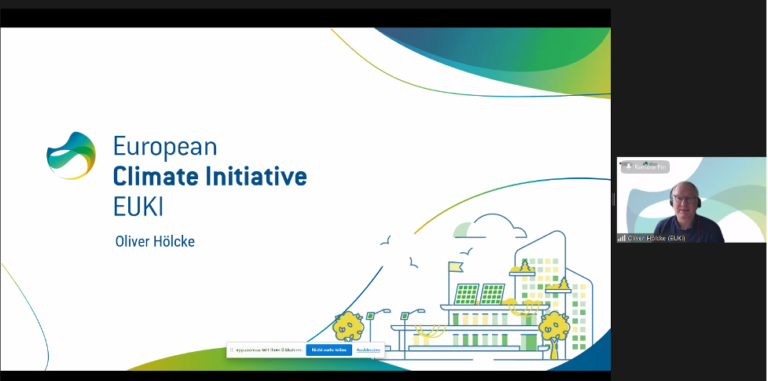
After a brief presentation of EUKI, and the financed projects that focus on energy efficiency Oliver introduced himself, and his presentation, called “KISS – Keep It Short &Simple”, focused on some of the simplest and most effective ways of communicating.
He shared with the participants tips & tricks about how to effectively transmit a short but powerful message. One very important aspect mentioned by Oliver on successful communication was the “Target Group Analysis”, as it is always worthwhile asking yourself who the audience is.
In conclusion, Oliver pointed out that external communication is crucial for the image and reputation of a company, an institution, or a project. It builds and maintains relationships and trust with citizens, partners, stakeholders, and the public. Communication conveys the values, goals, and services, and offers an increased level of visibility, awareness and competitiveness.
When the participants asked him about some tips for climate communications, Oliver highlighted the importance of tailoring your message to your target audience. A simple message can be the key but if an image is also used, the message regarding climate emergency will be more powerful.
The second speaker was Allison Le Corre, Communications & EU Policy at Energy Cities. Allison joined Energy Cities in May 2022. As a communications specialist working on EU policy, she is intent on making climate politics more understandable to all and firmly believes in the power of storytelling to advance climate action.
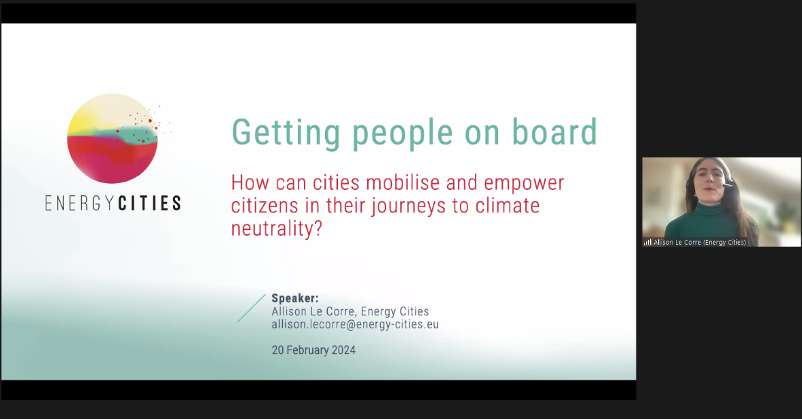
Her speech focused on “How can cities mobilize and empower citizens in their journeys to climate neutrality?” while municipalities are only responsible for 5-15% of their city’s emissions. The solution proposed by Allison to engage the 90% left, comes in 3 steps: Raising awareness (Making the journey understandable), Engagement (Making the journey interactive), Empowerment (Making it everyone’s journey).
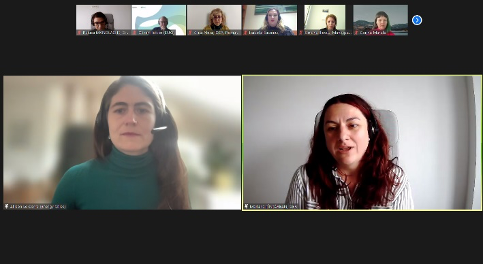
Another important element in citizen engagement is the citizen assemblies, which consist of randomly selected groups of individuals at the local or national level who convene to deliberate on an important issue. A very useful resource is KNOCA’s Guide to Climate Assemblies.
Corina Murafa, an independent public policy expert, activist and university lecturer in climate, energy and sustainability was the last of the three speakers. She has been collaborating with large non-profit, public and private organisations, giving a voice to civil society organizations in Brussels and Bucharest, as a member of the European Economic and Social Committee and of the Economic and Social Council of Romania. Her work focuses mostly on the just energy transition, energy poverty and ESG transformations in corporations. She is a member of the Romanian Energy Poverty Observatory and a lecturer, PhD, at the Faculty of Business Administration at Bucharest University of Economic Studies, having a solid academic background through studies and long-term fellowships in energy and climate economics and policy.
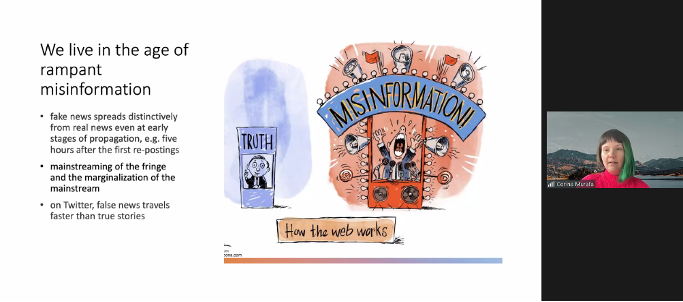
Corina gave another perspective on the challenges regarding the Climate Neutrality communication approach in 2024. She talked about misinformation, how fake news travels faster than true stories and how we can distinguish the truth from a myth. She selected and presented to the participants some relevant examples of fake news that propagated very fast lately all over Europe. But, in this context, Corina emphasised that inaction is more costly than action, so a solution may involve the citizens and several examples and ideas were presented for the municipalities to take into consideration: Idea #1: A Climate Assembly, Idea #2: An Energy Community, Idea #3: Green schools.
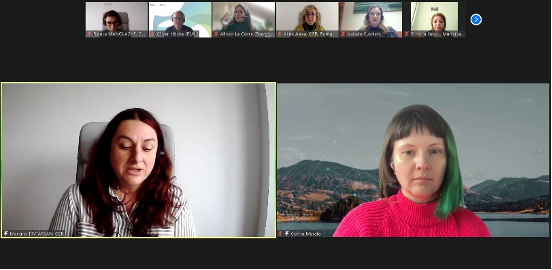
The last part of the webinar was a more interactive one, dedicated to the Q&A and open discussions. Râmnicu Vâlcea Municipality, a Pilot City from Romania, shared some great news, they are going to organise the first Citizens Assembly in March-June. This year! They will send 2000 letters to 2000 citizens in the coming week to invite them to a civic lottery, then they will choose 20 members of the first citizens‘ jury.
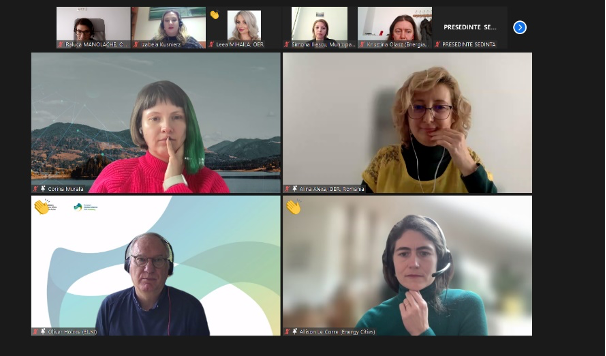
The questions raised by the participants were mainly about the challenges that the municipality are facing in their Climate Neutrality journey. The increasing number of extremist parties across the whole of Europe and their messages against the European Union, and the energy resources crisis generated by the war in Ukraine.
All three speakers concluded that the fight for Climate Neutrality is not a short-term challenge, it requires a long-term approach that starts with the education of the younger generation. As for the crises that arise along the way, they should not change the long-term goal, but on the contrary, are challenges that make us find new solutions and be resilient
- Oliver emphasized that the abundance of news, mixed with so much fake news makes it difficult for people to remain connected to the truth.
- Allison also considers that education could be the key, but in the meantime, communication and dialog is also very important to prevent fake news spread.
- Corina concluded that prevention is better than cure, schools can be involved in the dialog to prepare the next generation of citizens. While awareness of the benefits of green technologies can increase the citizen’s involvement, climate solutions are solutions not only for the good of the planet but also for the well-being of citizens.
The webinar recording can be accessed here.
Ending the webinar, the host concluded that effective and targeted communication is essential for climate action and any similar sustainability-related initiatives, or in short „Building the right message to the right target“, and announced the next webinar, which will be the last in the series of 6, it will take place on March 12.
This 6 web seminar series has ended and was part of the Ready4NetZero project. This capacity-building program targeted the municipal administration staff from the project pilot cities, but also other local authorities in Croatia, Hungary, Poland or Romania. Below you can find the presentations and the webinar recordings.
- Long-term vision: a possible way to self-sufficiency and climate neutrality in 2035
- Financing climate transition
- Navigating challenges in citizen participation for climate neutrality
- Innovative energy systems and energy growth: The Rhein-Hunsrück-Kreis Model
- Climate neutrality awareness, the key to society involvement in a sustainable future
- Urban energy planning and the challenge of energy poverty
Ready4NetZero aims to promote knowledge exchange and develop capacity beyond the pilot cities by providing a forum for exchange. To provide necessary information and enhance knowledge about climate planning, we organized six webinars between September 2023 and March 2024.
